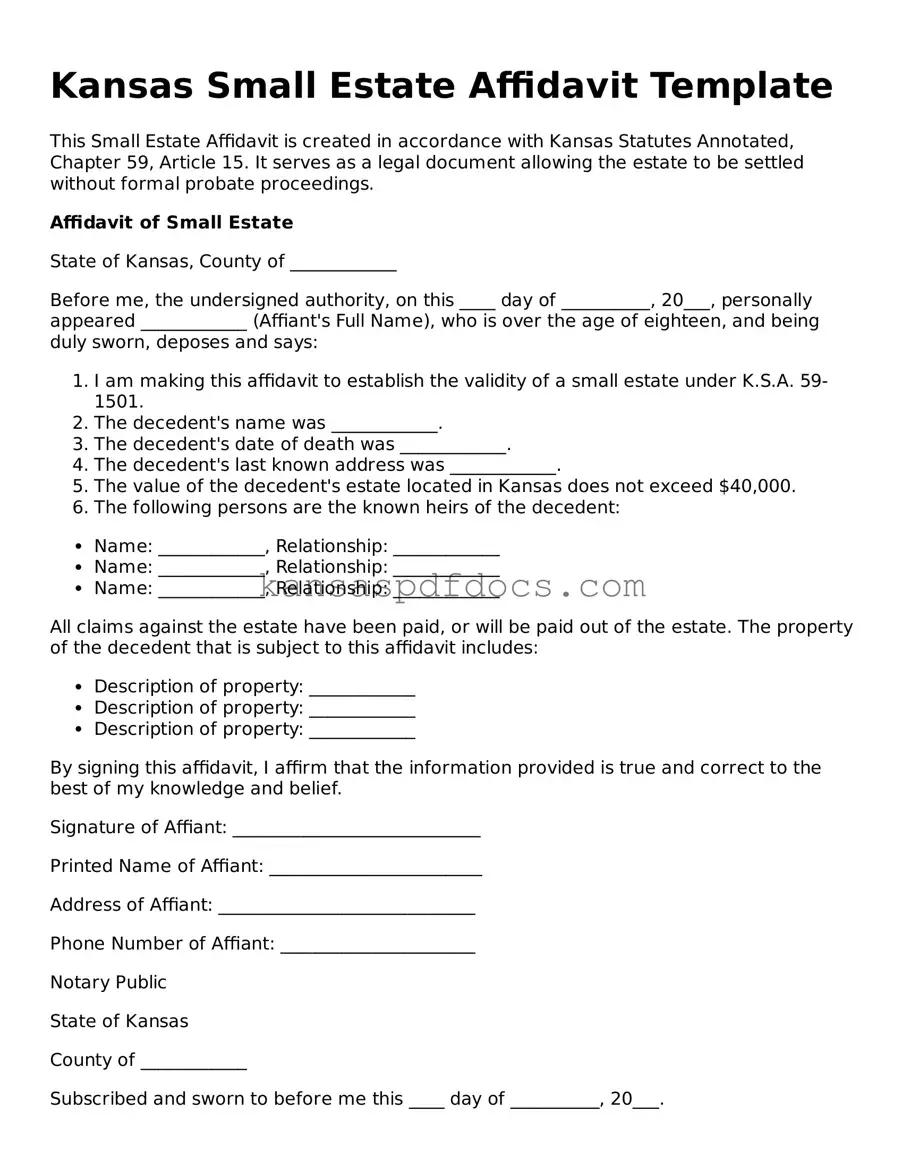Valid Small Estate Affidavit Template for Kansas State
The Kansas Small Estate Affidavit is a legal document that allows individuals to settle the estate of a deceased person without going through formal probate. This form simplifies the process for estates valued under a specific threshold, making it easier for heirs to access assets. Understanding how to properly use this affidavit can streamline the transition during a difficult time.
Access This Form Now

Valid Small Estate Affidavit Template for Kansas State
Access This Form Now
Your form isn’t ready yet
Edit and finalize Small Estate Affidavit online without printing.
Access This Form Now
or
Get PDF Form
